
Find Help
More Items From Ergsy search
-

How long do defibrillator batteries last?
Relevance: 100%
-

What maintenance do defibrillators require?
Relevance: 72%
-

How effective are defibrillators?
Relevance: 62%
-
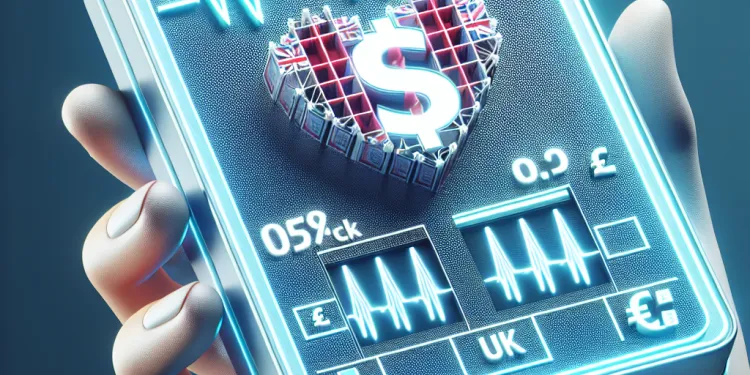
What is a defibrillator?
Relevance: 58%
-

What are the different types of defibrillators?
Relevance: 57%
-

How does a defibrillator work?
Relevance: 53%
-

What is the role of a defibrillator in CPR?
Relevance: 51%
-

What should you do if a defibrillator is needed?
Relevance: 51%
-

Who can use a defibrillator?
Relevance: 50%
-

Do defibrillators have any side effects?
Relevance: 50%
-
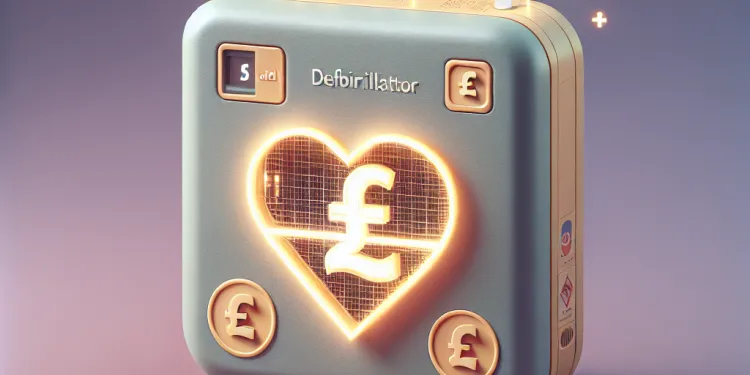
Can defibrillators be used on children?
Relevance: 49%
-

How do I recharge the battery on a Ring Doorbell Camera?
Relevance: 49%
-

Can a defibrillator restart a stopped heart?
Relevance: 49%
-
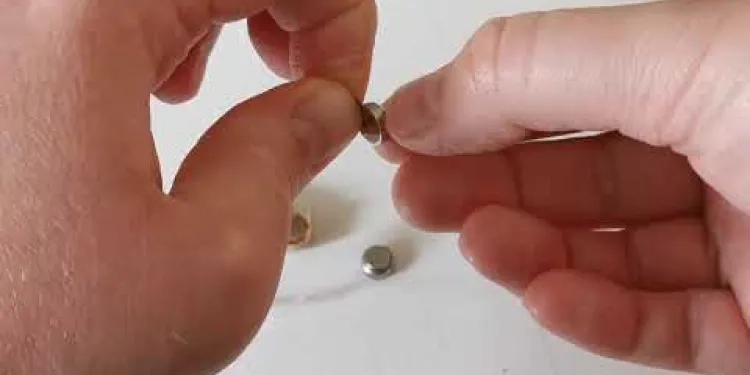
How to change your hearing aid battery
Relevance: 49%
-

How do you know if a defibrillator is required?
Relevance: 49%
-
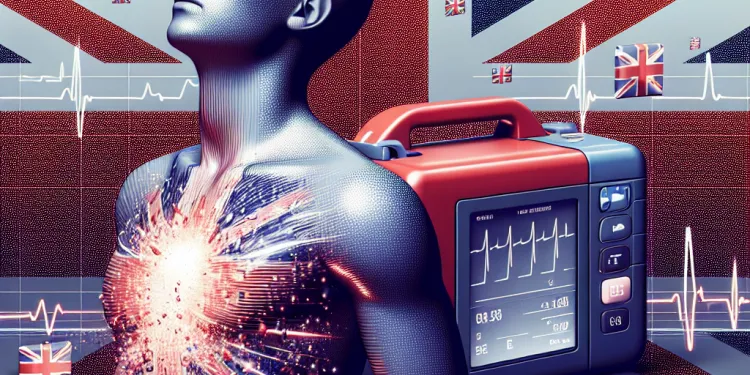
Can you use a defibrillator on a wet person?
Relevance: 47%
-
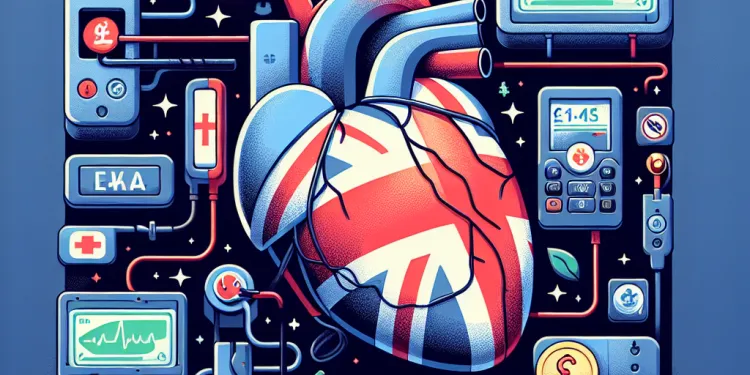
Why are defibrillators important?
Relevance: 38%
-

What is the typical duration a nicotine pouch should be used?
Relevance: 37%
-

What is a Defibrallator?
Relevance: 36%
-

What is the typical duration of a promotional balance transfer offer?
Relevance: 36%
-
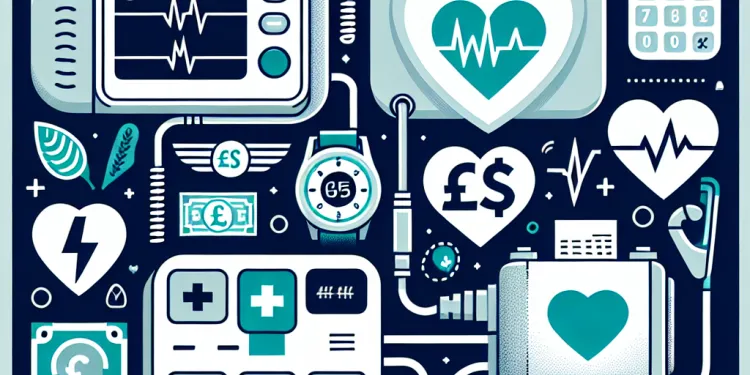
Is it safe to use a defibrillator on someone with a pacemaker?
Relevance: 34%
-

What is the typical duration of property litigation?
Relevance: 33%
-
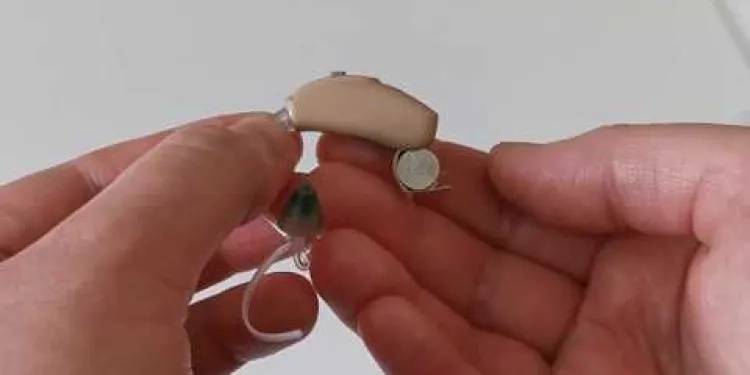
How to turn your hearing aids on and off
Relevance: 23%
-

What is the difference between an AED and an ICD?
Relevance: 22%
-

Showing you around your hearing aid
Relevance: 20%
-
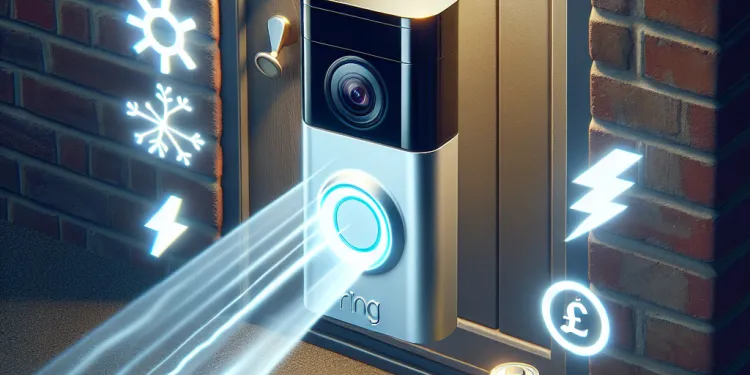
How does a battery-powered Ring Doorbell Camera work?
Relevance: 19%
-

What is an AED?
Relevance: 19%
-
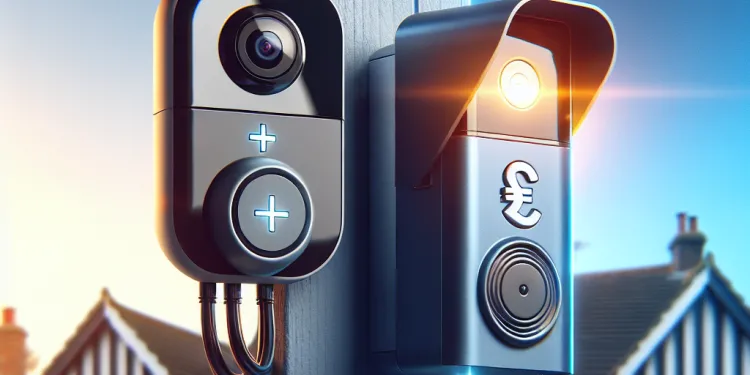
Are wired Ring Doorbell Cameras better than battery-powered ones?
Relevance: 18%
-

How do I maintain mobility equipment?
Relevance: 18%
-
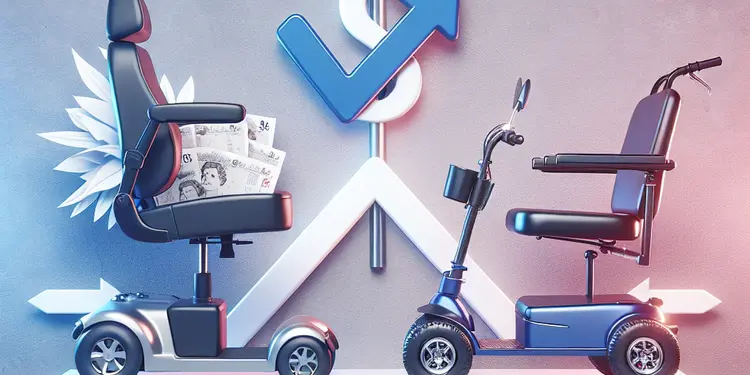
Are mobility scooters the same as electric wheelchairs?
Relevance: 17%
-
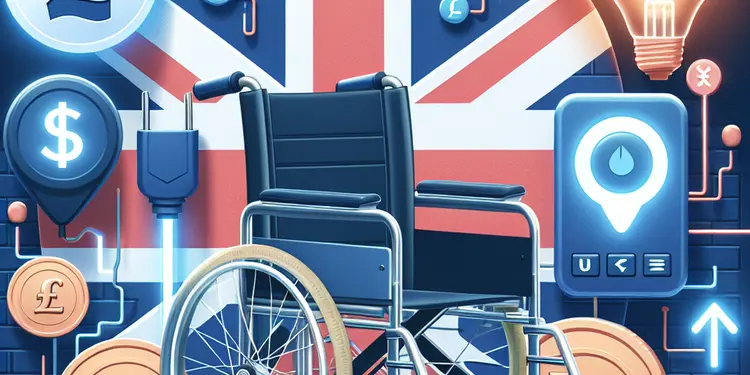
What is the difference between a manual and electric wheelchair?
Relevance: 17%
-
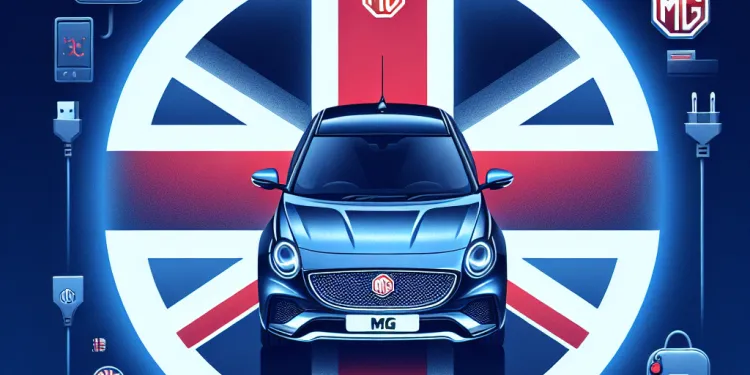
Does MG offer any electric vehicles in the UK?
Relevance: 16%
-

How long does Paillon treatment last?
Relevance: 16%
-

Is training required to use an AED?
Relevance: 16%
-
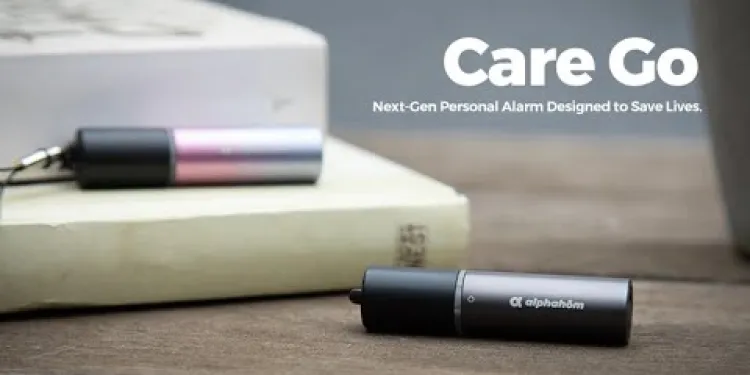
Bluetooth Tracker with Personal Alarm
Relevance: 15%
-

Are there any electric vehicles from MINI available in the UK?
Relevance: 15%
-
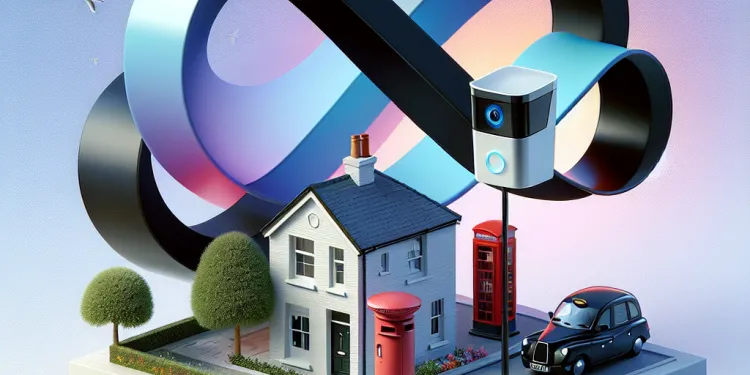
Can a Ring Doorbell Camera record continuously?
Relevance: 15%
-
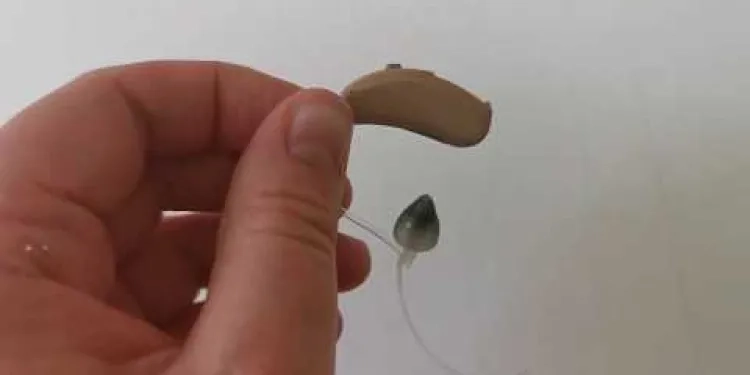
How to clean your hearing aid
Relevance: 15%
-

How long does a hip replacement surgery take?
Relevance: 15%
-

Does Renault offer electric vehicles in the UK?
Relevance: 15%
Understanding Defibrillator Batteries
Defibrillators play a crucial role in emergency medical care, offering a chance to restart a heart during sudden cardiac arrest. However, the functionality of these life-saving devices hinges significantly on the condition and longevity of their batteries. The lifespan of defibrillator batteries is a critical factor that health professionals and facilities need to monitor closely to ensure they are operational when needed.
Types of Defibrillator Batteries
Defibrillator batteries come in two main types: rechargeable and non-rechargeable. Non-rechargeable batteries, often found in Automated External Defibrillators (AEDs), are designed for long-term standby use. They are typically lithium-based and favored for their reliability and minimal maintenance. Rechargeable batteries, used in more advanced or professional-grade defibrillators, are often composed of materials like nickel-metal hydride or lithium-ion, offering flexibility and reusability.
Average Lifespan of Defibrillator Batteries
In the UK, the lifespan of a defibrillator battery varies depending on its type and usage. Non-rechargeable AED batteries can last between 2 to 5 years in standby mode. Manufacturers usually provide specific longevity expectations, with some high-quality batteries lasting up to 7 years under optimal conditions. This variation depends on the frequency of device use, storage conditions, and adherence to maintenance procedures.
Rechargeable batteries, on the other hand, have a different longevity measurement. They are often rated by the number of charge-discharge cycles they can sustain. Typically, these batteries can endure between 200 to 500 cycles, equating to approximately 1 to 3 years of regular use. Their lifespan requires regular attention to ensure they remain charged and functional.
Factors Influencing Battery Life
Several factors can influence the actual lifespan of defibrillator batteries. Environmental conditions such as temperature extremes can degrade battery efficacy over time. Storing defibrillators in overly warm or cold environments can shorten their battery life. Moreover, routine checks and maintenance are crucial. Failing to conduct regular battery checks can lead to unexpected device failures.
Replacing Defibrillator Batteries
It is essential to have a robust battery replacement plan for defibrillators. Regular testing should be part of established protocols, with clear guidelines about when a battery should be replaced. Manufacturers often provide alerts or indicators within the device to notify users when the battery approaches the end of its usable life.
Conclusion
For those using defibrillators in the UK, understanding battery life is essential for maintaining readiness for emergencies. Ensuring that defibrillators are equipped with functional batteries can make a significant difference in critical situations, potentially saving lives. Regular monitoring and timely replacement of batteries ensure these devices are reliable when they are most needed.
Understanding Defibrillator Batteries
Defibrillators are machines that help people who have heart problems in an emergency. These machines can start a heart again if it stops. Defibrillators need batteries to work. It is important to check that the batteries are good, so the defibrillator works when it is needed.
Types of Defibrillator Batteries
There are two main kinds of defibrillator batteries: rechargeable and non-rechargeable. Non-rechargeable batteries are used once and then replaced. They are often in machines called AEDs. These batteries are very reliable and need little care. Rechargeable batteries can be used again and again. They are in more advanced machines and are made from special materials.
Average Lifespan of Defibrillator Batteries
In the UK, how long a defibrillator battery lasts depends on what kind it is. Non-rechargeable batteries usually last 2 to 5 years if the machine is not used much. Some can last up to 7 years if cared for properly. How often you use the machine and how you store it affect the battery life.
Rechargeable batteries last by the number of times they are charged and used. They can usually be charged between 200 to 500 times, which means they last about 1 to 3 years. It is important to keep these batteries charged so they work well.
Factors Influencing Battery Life
Many things can affect how long a defibrillator battery will last. The temperature where the defibrillator is stored is important. Batteries do not like being too hot or too cold. Regularly checking and taking care of the battery helps prevent surprises when you need it.
Replacing Defibrillator Batteries
It is very important to have a plan for changing defibrillator batteries. The defibrillator should be checked often. Make sure you know when to replace the batteries. Sometimes, the machine will show a sign or make a noise to tell you that the battery is low.
Conclusion
If you use defibrillators in the UK, you need to know about battery life. Good batteries are needed in emergencies and can save lives. By regularly checking and changing batteries, the defibrillator will be ready when needed most.
Frequently Asked Questions
How long do defibrillator batteries typically last?
Defibrillator batteries generally last between 3 to 5 years depending on the type and usage.
What factors affect the lifespan of a defibrillator battery?
The lifespan of a defibrillator battery can be affected by factors such as the frequency of use, storage conditions, and the specific model of the defibrillator.
Can the lifespan of a defibrillator battery vary by model?
Yes, battery lifespans can vary by model based on the technology and the battery type used in different defibrillators.
Do all defibrillators use the same type of battery?
No, defibrillators can use different types of batteries including lithium, alkaline, or rechargeable batteries, depending on the model.
Is it necessary to replace the defibrillator battery regularly?
Yes, it's crucial to replace defibrillator batteries before they reach the end of their lifespan to ensure the device functions properly during an emergency.
How can I check the battery status of my defibrillator?
Most defibrillators have a built-in status indicator or self-check system that displays battery life and alerts you to replace the battery if needed.
What happens if a defibrillator's battery dies during use?
If a defibrillator's battery dies, it may not function properly, and emergency shocks cannot be delivered, which can be life-threatening in critical situations.
Are there any signs that a defibrillator battery is about to fail?
A low battery indicator or alert sound on the defibrillator often signals that the battery needs to be replaced soon.
Can I extend the life of my defibrillator's battery?
Battery life can sometimes be extended by storing the defibrillator in optimal conditions and ensuring it's not exposed to extreme temperatures.
Do rechargeable defibrillator batteries last longer than disposable ones?
Rechargeable batteries may have a longer usage period with proper care, but disposable batteries can also last several years without recharging.
What should be done with old defibrillator batteries?
Old defibrillator batteries should be disposed of properly according to local regulations to ensure environmental safety.
Are defibrillator battery replacements covered under warranty?
Battery replacement coverage depends on the manufacturer's warranty policy, which varies between different brands and models.
How often should defibrillator batteries be tested?
Defibrillator batteries should be tested regularly according to the manufacturer's guidelines to ensure they are functioning correctly.
Can improper storage affect the lifespan of a defibrillator battery?
Yes, improper storage, such as exposure to extreme temperatures, can significantly reduce a battery's lifespan.
Do different defibrillator brands have different battery life expectancies?
Yes, different brands may have different battery life expectancies based on their technology and manufacturing specifications.
Is routine maintenance necessary for defibrillator batteries?
Routine maintenance, including checking battery life and functionality, is crucial to ensure the defibrillator is ready for use.
Can I use third-party batteries for my defibrillator?
It is generally recommended to use batteries specified by the defibrillator manufacturer to ensure compatibility and safety.
How should I store a defibrillator to maximize battery life?
Store the defibrillator in a dry, room-temperature environment away from direct sunlight to maximize battery life.
Does frequent use of a defibrillator affect battery life?
Yes, frequent use can deplete the battery faster than the expected lifespan, necessitating more frequent replacements.
Can manufacturers predict the exact battery lifespan of a defibrillator?
Manufacturers provide an estimated battery lifespan range, but exact lifespan can vary based on usage and other factors.
How long do defibrillator batteries usually work?
Defibrillator batteries last for a certain time before they need changing. They usually work for 3 to 7 years.
Here are some tools to help understand better:
- Use pictures or videos about defibrillators.
- Ask someone to explain with simple words.
Defibrillator batteries last for about 3 to 5 years. How long they last depends on the type of battery and how much it is used.
What things can change how long a defibrillator battery lasts?
A defibrillator battery is like a very strong battery that helps doctors in emergencies. Here are some things that can change how long it works:
- Use: How often we use the defibrillator can make the battery run out faster.
- Storage: Where we keep the defibrillator matters. If it's too hot or cold, the battery may not last as long.
- Age: Old batteries don't last as long as new ones.
- Quality: Good quality batteries usually last longer.
Here are some ways to help:
- Check the defibrillator often to make sure it's working.
- Keep it in a safe place at the right temperature.
- Replace old batteries with new ones when needed.
The battery in a defibrillator can last for different times. This depends on how often you use it, how you store it, and what kind of defibrillator it is.
Do different defibrillator models have batteries that last for different times?
Yes, different defibrillator models can have batteries that last for different lengths of time.
Here are some things that can help you understand better:
- Ask for help: If you don't understand, ask someone to explain it to you.
- Use pictures: Look at diagrams or pictures of defibrillators to see the differences.
- Watch videos: Find videos that show how defibrillators work.
Yes, how long a battery lasts can be different. It depends on the type of battery and the machine it is used in.
Do all heart shock machines use the same battery?
A heart shock machine is a tool that helps when someone's heart stops. These machines use batteries to work. It is good to know that not all heart shock machines use the same battery. Some use different kinds.
If you need help reading or understanding, you can use tools like a dictionary or ask someone to explain.
No, defibrillators do not all use the same type of battery. They can use different batteries like lithium, alkaline, or rechargeable ones. It depends on the model.
Do we need to change the defibrillator battery often?
Yes, it's very important to change the batteries in a defibrillator before they run out. This makes sure the device works well if there is an emergency.
How do I see if my defibrillator's battery is okay?
Here's how you can check your defibrillator:
- Look for a button that says 'Check' or 'Test'.
- Press this button to see how the battery is doing.
- If you don't know the button, ask someone for help.
You can also use a manual or guide to help you. It will show you what to do.
Most heart-shocking machines tell you when the battery is low. They can check themselves and let you know if the battery needs changing.
What happens if a defibrillator's battery runs out while using it?
A defibrillator is a machine that helps a person's heart start beating normally. It uses a battery to work.
If the battery runs out while you are using the defibrillator, the machine might stop working. This means it won't be able to help the person’s heart.
Here are some tips:
- Check the battery before using the defibrillator.
- Have extra batteries ready just in case.
Always make sure the defibrillator is ready to help when needed.
If a defibrillator's battery runs out, it won't work, and it can't give the electric shock that helps in emergencies. This can be very dangerous.
How can you tell if a defibrillator battery is running low?
You should check if the battery is low or not working well.
Here are some signs to look for:
- A warning light comes on.
- The machine makes beeping sounds.
- The screen shows a low battery message.
It's a good idea to check the battery often. You can use reminders or ask someone to help you check.
If the defibrillator shows a low battery sign or makes a beep sound, it means the battery will need to be changed soon.
Can I make my defibrillator's battery last longer?
You can make the battery last longer. Here are some simple tips:
- Turn off the defibrillator when you are not using it.
- Keep the battery in a cool and dry place.
- Check the battery often to make sure it is okay.
If you need help, ask someone you trust or use a helper tool, like a video or picture guide.
To make the battery last longer, keep the defibrillator in a good place. Make sure it is not too hot or too cold.
Do rechargeable defibrillator batteries last longer than disposable ones?
Do rechargeable batteries for defibrillators work longer than use-once batteries?
Rechargeable batteries can be used many times. You just charge them again after they get empty.
Disposable batteries can be used only one time. When they get empty, you throw them away.
You can talk to an adult if you need help understanding this.
Rechargeable batteries can work for a long time if we look after them. But disposable batteries can also last many years, and we don't need to recharge them.
What should you do with old defibrillator batteries?
It is important to take care of old defibrillator batteries. Follow these steps:
1. Do not throw them in the trash. They can be dangerous.
2. Take them to a special recycling center. The people there know how to handle them safely.
3. Ask for help if you are not sure where to take them. You can ask someone at a hospital or fire station.
Using pictures, videos, or asking a friend can also help you understand what to do.
Get rid of old defibrillator batteries the right way. Follow your local rules to keep the environment safe.
Does the warranty pay for new defibrillator batteries?
Replacing a battery depends on what the company promise says. Different brands and models have different rules.
How often should you check defibrillator batteries?
It is important to check defibrillator batteries to make sure they work.
Try checking them every month. This keeps them ready to use in an emergency.
Use stickers or a calendar to remember when to check the batteries.
Check defibrillator batteries often to make sure they work properly. Follow what the maker says to do.
Does bad storage make a defibrillator battery last less time?
Yes, if you store a battery in a place that is too hot or too cold, it can make the battery stop working sooner.
Do defibrillators from different brands have batteries that last different lengths of time?
Yes, different brands of batteries might last for different amounts of time. This depends on how they are made.
Do we need to check defibrillator batteries often?
It is important to check and care for defibrillator batteries regularly.
This helps make sure they work when needed.
You can use checklists to help remember to do this.
Alarms or reminders on your phone can also be helpful.
It's really important to look after the defibrillator. This means checking the battery and making sure it works. This helps us know it will be ready if we need it.
Here are some tools and tips to help:
- Use a checklist to remember what to check.
- Set a reminder or alarm to check it regularly.
- Ask someone you trust to help you check it if you need support.
Can I use other brands of batteries for my heart machine?
You can check if batteries from other brands work with your heart machine. Make sure they are safe. Ask your doctor or look in the user guide.
If you don’t know what to do, ask someone you trust for help. You can also use these ideas:
- Look for batteries that say they work with your heart machine.
- Talk to the company that made your heart machine.
- Read reviews to see if other people used different brands.
It is best to use the batteries that are made for the defibrillator. This makes sure it works properly and is safe to use.
How do I keep a defibrillator battery working for longer?
Keep the defibrillator in a dry place that is not too hot or too cold. Make sure the sun does not shine directly on it. This will help the battery last longer.
Does using a heart zapper a lot make the battery run out faster?
Yes, using it a lot can make the battery run out sooner. You might need to get a new battery more often.
Can companies tell how long a defibrillator battery will last for sure?
Battery makers give an idea of how long a battery might last. But the real time a battery works can change depending on how you use it and other things.
Useful Links
- Ergsy carfully checks the information in the videos we provide here.
- Videos shown by Youtube after a video has completed, have NOT been reviewed by ERGSY.
- To view, click the arrow in centre of video.
- Most of the videos you find here will have subtitles and/or closed captions available.
- You may need to turn these on, and choose your preferred language.
- Go to the video you'd like to watch.
- If closed captions (CC) are available, settings will be visible on the bottom right of the video player.
- To turn on Captions, click settings .
- To turn off Captions, click settings again.
More Items From Ergsy search
-

How long do defibrillator batteries last?
Relevance: 100%
-

What maintenance do defibrillators require?
Relevance: 72%
-

How effective are defibrillators?
Relevance: 62%
-

What is a defibrillator?
Relevance: 58%
-

What are the different types of defibrillators?
Relevance: 57%
-

How does a defibrillator work?
Relevance: 53%
-

What is the role of a defibrillator in CPR?
Relevance: 51%
-

What should you do if a defibrillator is needed?
Relevance: 51%
-

Who can use a defibrillator?
Relevance: 50%
-

Do defibrillators have any side effects?
Relevance: 50%
-

Can defibrillators be used on children?
Relevance: 49%
-

How do I recharge the battery on a Ring Doorbell Camera?
Relevance: 49%
-

Can a defibrillator restart a stopped heart?
Relevance: 49%
-

How to change your hearing aid battery
Relevance: 49%
-

How do you know if a defibrillator is required?
Relevance: 49%
-

Can you use a defibrillator on a wet person?
Relevance: 47%
-

Why are defibrillators important?
Relevance: 38%
-

What is the typical duration a nicotine pouch should be used?
Relevance: 37%
-

What is a Defibrallator?
Relevance: 36%
-

What is the typical duration of a promotional balance transfer offer?
Relevance: 36%
-

Is it safe to use a defibrillator on someone with a pacemaker?
Relevance: 34%
-

What is the typical duration of property litigation?
Relevance: 33%
-

How to turn your hearing aids on and off
Relevance: 23%
-

What is the difference between an AED and an ICD?
Relevance: 22%
-

Showing you around your hearing aid
Relevance: 20%
-

How does a battery-powered Ring Doorbell Camera work?
Relevance: 19%
-

What is an AED?
Relevance: 19%
-

Are wired Ring Doorbell Cameras better than battery-powered ones?
Relevance: 18%
-

How do I maintain mobility equipment?
Relevance: 18%
-

Are mobility scooters the same as electric wheelchairs?
Relevance: 17%
-

What is the difference between a manual and electric wheelchair?
Relevance: 17%
-

Does MG offer any electric vehicles in the UK?
Relevance: 16%
-

How long does Paillon treatment last?
Relevance: 16%
-

Is training required to use an AED?
Relevance: 16%
-

Bluetooth Tracker with Personal Alarm
Relevance: 15%
-

Are there any electric vehicles from MINI available in the UK?
Relevance: 15%
-

Can a Ring Doorbell Camera record continuously?
Relevance: 15%
-

How to clean your hearing aid
Relevance: 15%
-

How long does a hip replacement surgery take?
Relevance: 15%
-

Does Renault offer electric vehicles in the UK?
Relevance: 15%


